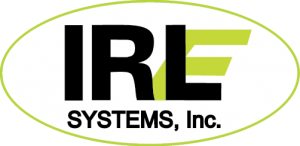
A Comprehensive Guide to Fire Alarm Systems for NYC Restaurants & Bars
- Comparing Fire Alarm Companies in NYC? Read This First - December 11, 2024
- Key Factors to Consider When Choosing an FDNY Approved Fire Alarm Company - November 20, 2024
- Complying with NYC Building Code: You Need An Edwards Fire Alarm Dealer - November 10, 2024
Fire safety is paramount in any establishment, particularly in New York City where regulations are stringent and safety standards are rigorously enforced. For restaurants and bars in NYC, compliance with the city’s fire code is not just a legal obligation but also a moral imperative to protect patrons and staff alike. In this guide, we will delve into the intricacies of fire alarm systems specifically tailored for NYC restaurants and bars, emphasizing the relevant provisions of the NYC Fire Code to ensure full compliance.
The NYC Fire Code, a comprehensive set of regulations governing fire safety in the city, outlines specific requirements for fire alarm systems in restaurants and bars. According to Section 908 of the NYC Fire Code, fire alarm systems must be installed, maintained, and tested in accordance with the standards set forth by the National Fire Protection Association (NFPA) and other relevant authorities.
Key Components of Fire Alarm Systems:
- Smoke Detectors: Smoke detectors are essential components of any fire alarm system, detecting the presence of smoke and triggering the alarm. In NYC, restaurants and bars must install smoke detectors in accordance with NFPA 72 standards, which specify the type, placement, and maintenance requirements for these devices.
- Heat Detectors: Heat detectors complement smoke detectors by detecting rapid increases in temperature, indicating the presence of fire. NYC Fire Code mandates the installation of heat detectors in areas where smoke detectors may not be suitable due to environmental factors such as high humidity or dust.
- Manual Pull Stations: Manual pull stations provide a means for occupants to manually activate the fire alarm system in case of emergency. NYC Fire Code requires these stations to be easily accessible and clearly identified with proper signage, ensuring quick response in the event of a fire.
- Notification Appliances: Notification appliances, including bells, horns, and strobe lights, alert occupants to the presence of a fire and facilitate prompt evacuation. In NYC, these appliances must comply with NFPA 72 standards regarding sound levels and visual signaling requirements to ensure effective notification in noisy and visually impaired environments.
- Control Panels: Control panels serve as the central hub of the fire alarm system, monitoring inputs from detectors and manual pull stations and activating notification appliances when necessary. NYC Fire Code mandates the installation of UL-listed control panels equipped with features such as battery backup and remote monitoring capabilities for added reliability and functionality.
Installation and Maintenance Requirements:
In addition to specifying the components of fire alarm systems, the NYC Fire Code outlines strict requirements for their installation and maintenance. According to Section 907 of the NYC Fire Code, fire alarm systems must be installed by licensed professionals and undergo regular inspections and testing to ensure proper functionality and compliance with applicable standards.
Furthermore, NYC restaurants and bars are required to keep detailed records of inspections, tests, and maintenance activities related to their fire alarm systems, as per Section 901.6 of the NYC Fire Code. These records serve as evidence of compliance during inspections by the NYC Fire Department and other regulatory authorities.
Integration with Building Systems:
Fire alarm systems in NYC restaurants and bars may also be required to integrate with other building systems, such as HVAC and security systems, to enhance overall safety and efficiency. Section 907.2.13 of the NYC Fire Code addresses the integration of fire alarm systems with elevator controls, allowing for the automatic recall of elevators to designated floors in the event of a fire emergency.
Additionally, NYC Fire Code mandates coordination between fire alarm systems and building management systems to facilitate remote monitoring and control of fire protection devices and equipment. This integration ensures seamless operation and timely response in emergencies, minimizing the risk to occupants and property.
Training and Emergency Preparedness:
Beyond the installation and maintenance of fire alarm systems, NYC restaurants and bars must prioritize training and emergency preparedness to effectively respond to fire incidents. Section 404 of the NYC Fire Code requires employers to develop and implement fire safety plans that include procedures for evacuation, notification of authorities, and coordination with emergency responders.
Moreover, NYC Fire Code mandates regular fire drills and training exercises for restaurant and bar staff to familiarize them with emergency procedures and evacuation routes. By investing in training and preparedness, establishments can mitigate the potential impact of fire emergencies and ensure the safety of everyone onsite.
Fire alarm systems play a critical role in safeguarding NYC restaurants and bars against the devastating effects of fire incidents. By adhering to the provisions of the NYC Fire Code and implementing comprehensive fire alarm systems, establishments can minimize the risk of fire-related injuries, property damage, and business disruption. Through proper installation, maintenance, and training, NYC restaurants and bars can create a safer environment for patrons, staff, and the community at large, demonstrating their commitment to fire safety and compliance with regulatory requirements.
